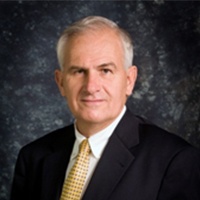Mount Storm Misdemeanor Lawyer, West Virginia
Not enough matches for Mount Storm Misdemeanor lawyer.
Below are all Mount Storm Criminal lawyers.
Sean Thomas Logue
✓ VERIFIEDCriminal, DUI-DWI, Traffic, Felony
Serving Clients in the Greater Pittsburgh Area and West Virginia
Sean Logue is a diligent attorney who excels at representing people who have been charged with criminal and traffic offenses in Pennsylvania. He const... (more)
William C. Brewer
✓ VERIFIEDDivorce & Family Law, Medical Malpractice, Litigation, Criminal, Accident & Injury
Some Trial Lawyers Say They Have Experience. We Actually Do.
Legal challenges require top-level experience and skill. That’s why individuals and businesses in West Virginia (WV) turn to attorney William C. Bre... (more)
Wesley W. Metheney
Mass Torts, Chemical & Cosmetics, Criminal, Bed Bug, Mesothelioma
Status: In Good Standing
J. Michael Benninger
Criminal, Federal Trial Practice, Mental Health, Legal Malpractice
Status: In Good Standing
J. Brandon Shumaker
Criminal, Accident & Injury, Workers' Compensation, Medical Malpractice
Status: In Good Standing Licensed: 14 Years
Andrew Neil Frye
Juvenile Law, Employment, Divorce, Criminal
Status: In Good Standing Licensed: 20 Years
Rebecca Louise Miller
Defect and Lemon Law, Employee Rights, Child Custody, Criminal
Status: In Good Standing Licensed: 10 Years
Elizabeth B. Warnick
Real Estate Other, Criminal, Consumer Protection, Credit & Debt
Status: In Good Standing Licensed: 29 Years
Earl Wilson Maxwell
Workers' Compensation, Divorce & Family Law, Criminal
Status: In Good Standing Licensed: 33 Years



